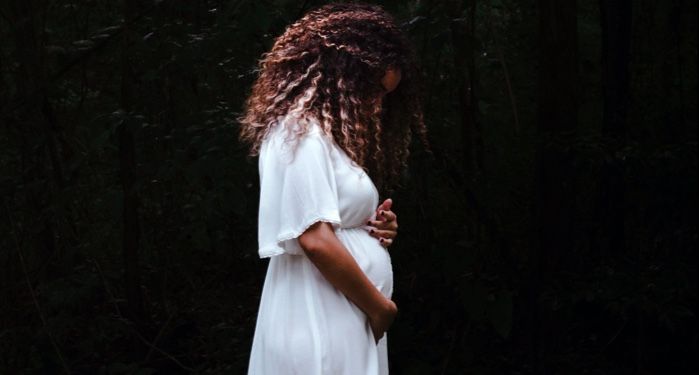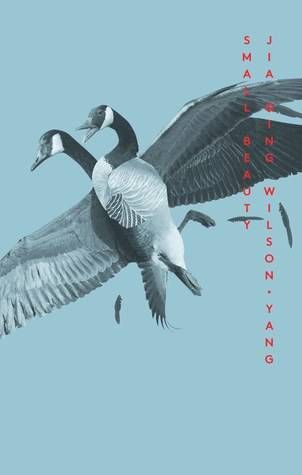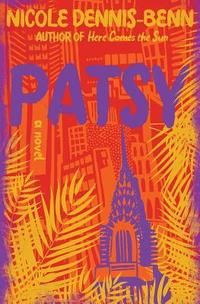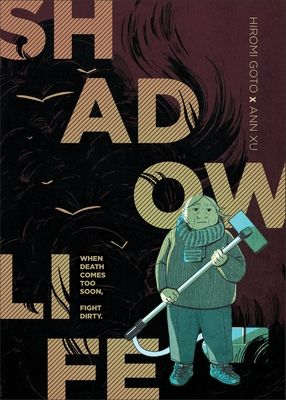Queer books about found family are not hard to come by. But as wonderful as those books are, sometimes I just want to read about queer parents and other biologically related queer people: queer grandparents, siblings, elders, and other caregivers. I want books that explore how queerness lives in bio families, and delve into all the beautiful, messy realties of queer parenthood. Luckily for all of us, books like this do, in fact, exist! All of these novels about queer parents are, at once, distinctly queer and distinctly not queer. That sounds like a contradiction, so let me explain. Sometimes, for me, being queer is everything. It changes who I am, how I’m treated, what I want, how I see the world. Other times, I’m hardly thinking about it. It’s just not a factor. But there’s no on/off switch. I’m always queer. Sometimes it’s really important and sometimes it’s really not. I crave fiction that reflects this seemingly contradictory but actually quite ordinary experience.
The authors of these books understand that being a queer parent is actually different from being a straight parent. They understand that queerness changes parenthood. At the same time, the queer parents in these books are often engaged in acts of parenting that have nothing to do with being queer: breastfeeding a newborn, or trying to get your overprotective adult daughters to leave you alone. Queerness always matters, but not always the same amount.
So, without further ado: five novels featuring queer parents in all their flawed and human glory.

Weekend by Jane Eaton Hamilton
I love this book for a million reasons, and one of them is all the iterations of queer parenthood it explores. It’s set over the course of one weekend on a remote lake in northern Canada. It follows two queer couples, both facing major turning points in their relationships. Joe and Elliot have been together for almost 20 years and have just become parents. The book opens a week after Joe gives birth to their daughter. Logan and Ajax have recently started dating, and they’re on their first weekend getaway together. Ajax has adult children from a previous relationship. It’s a messy, wonderfully human book about characters muddling through partnership, desire, friendship, parenting, aging, regret. Hamilton delves right into the realities of new motherhood: there’s a lot of bodily fluids, pain, and sleeplessness. But they also write beautifully about queer parenthood, specifically. Joe and Elliot have just had a kid, but they’re also trying to figure out if they even want to be together. Who will Elliot be to the kid if they split up? How has the baby changed their understanding of themself and their relationship? Whereas Ajax’s identity as a parent is settled and familiar. Her kids play an entirely different role in life, and in her relationship with Logan.
This is a book full of queer characters who mess up, make mistakes, act selfishly, cause each other harm, offer and receive forgiveness. Their queerness changes who they are as parents, and parenthood also changes how they understand, express, and relate to their queerness. It’s a stunning and deeply layered novel, and one of the most honest depictions of queer parenthood I’ve ever read.
Small Beauty by jia qing wilson-yang
Queer parenthood is at the heart of this gorgeous, quiet novel. Mei is a Chinese Canadian trans woman whose beloved cousin has just died. He leaves her his house in the small town where they grew up, so she deserts her life in the city to spend a year there, grieving. While there, Mei begins to revisit her family’s past, both in memories and in conversations with friends and townsfolk. Part of the immense pleasure of this novel is slowly untangling all these threads of family along with Mei. So I won’t give go into any details here. I’ll just say that this is a thoughtful, nuanced book that asks questions about not only what it means to be a queer parent, but about the hard choices queer parents often have to make in order to survive. It’s about how time period, location, race, class, gender, and so many other factors contribute to how queer people do and do not raise kids. It’s about the many different ways there are to be a queer parent or caregiver. And it’s about the often complicated relationships between queer caregivers and queer kids.
Patsy by Nicole Dennis-Benn
I absolutely love books that actively refute the “mom” stereotype that’s so deeply ingrained in our patriarchal society. You know the one: the perfect, selfless, adoring mother who would do anything for her kids and doesn’t have any identity outside of “mother.” I’ll be honest: this idea of losing myself to motherhood, of being only a mom and nothing else, was one of the biggest reasons I never wanted to have kids as a teenager. It terrified me. (I still don’t want kids, but I have different reasons now — my own, not society’s.)
Patsy is not a perfect mother; far from it. She’s a Jamaican lesbian who leaves her young daughter, Tru, in Jamaica when she emigrates to the U.S. She leaves, partly, in search of her best friend and first love, Cicely. Queerness is obviously not incompatible with parenthood, but right from the start, Dennis-Benn shows she isn’t afraid to explore how queerness and parenthood can clash, especially in a homophobic, sexist world. Patsy wants to live a free life as a queer woman, and she decides to leave Jamaica to do so. She makes a choice that harms her daughter. She does it for herself. Over the next decade, as Patsy and Tru live lives apart from each other, we get to see all the various consequences of Patsy’s actions. There’s joy, freedom, pain, loneliness, love, despair. It’s a story full of contradictions, about deeply flawed people in impossible situations. It’s rare to find a book staring a queer mother as fully alive as Patsy is. This is the kind of book about motherhood I needed when I was in my early 20s. It’s not a rosy picture of a mother-daughter relationship — it’s an honest, vulnerable, and deeply human one.
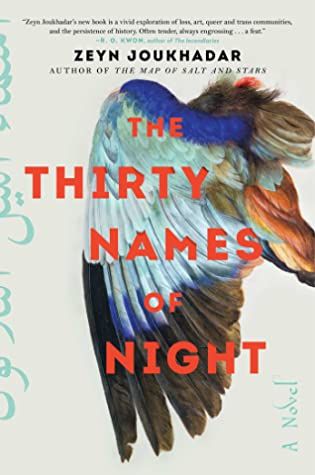
The Thirty Names of Night by Zeyn Joukhadar
It always bothers me when people express skepticism for a book because it features several biologically related queer characters. A queer parent is no less likely to have a queer kid than a straight parent. It’s not particularly shocking for a pair of siblings to both be queer. So whenever I find books about biological families with lots of queer characters, I do a little happy dance. Yes, this happens in books, and yes, it happens in the real world, too! This is one of those novels. It’s an intergenerational family epic, and there are almost no straight characters.
The story unfolds in two timelines. In contemporary New York, Nadir, a twentysomething Syrian American trans man, is grieving the death of his mother, taking care of his grandmother, and beginning to come out. He discovers the journal of a Syrian bird artist that his ornithologist mother loved, Laila Z. Half of the book is told through Laila’s journals, as she tries to build a life for herself as a queer artist and immigrant in the 1940s and ’50s. As Nadir learns more about Laila, their stories — the stories of their family and community — begin to intersect. Like in Small Beauty, watching Joukhadar masterfully weave these queer and trans lives together is part of the absolute joy of this novel. What I’ll say is that he exuberantly writes queer and trans people into so many kinds of familial roles: parents, grandparents, children, siblings, aunties. It’s a breathtaking novel about queer lineage, and the power of queer and trans people sharing their own stories with each other.
Shadow Life by Hiromi Goto and Ann Xu
I adore a badass old lady in fiction, and Kumiko is my new favorite. She’s in her 80s, and she is not at all pleased with the assisted living home her adult daughters urged her to move into. So she breaks out and gets herself a sweet apartment downtown. She’s quite happy with her new digs, and enjoying all the small wonders of ordinary life: making a cup of tea, swimming laps. But then Death’s shadow comes calling, and Kumiko is definitely not ready to die. So she traps it in a vacuum cleaner. (Badass!) But it takes all her ingenuity, plus the help of friends and family, to get rid of Death for good (or at least for now).
This is such a charming, funny, heartfelt story. Kumiko is bisexual, and though her queerness isn’t central, it’s important. Kumiko’s husband is dead and her adult children are a real thorn in her side. So when Death comes for her, the person she turns to for help is her ex, the woman she dated before she got married. This felt so natural to me, so familiar. It happens all the time in queer communities. We turn to one another for support, especially when we can’t find it elsewhere. I also love that Kumiko’s daughters don’t find out she’s bi until they meet her ex, near the end of the book. It didn’t feel like Kumiko had been hiding anything on purpose. There was no dramatic reveal. Rather, through Kumiko, Goto is exploring the idea that parents have lives outside of their children. Kumiko had a life before she became a mother, and she has a life in old age beyond being a mother. The whole novel is a beautiful portrait of the many lives a person can lead. Sometimes those lives blur and blend, and sometimes they don’t.
